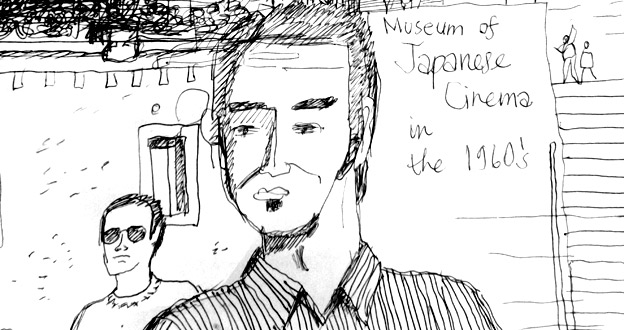|
JAPANESE CINEMA
The Japanese Cinema could be said to be a genre unto itself. It reveals Japanese society in ways that knowing it directly could never do. Yet, all that the films are showing are the manners which come out of human relationships. In Japanese life, aspects of emotion are revealed through certain difficulties in the verbal interchange that the subtitles cannot transmit because the inflections in the language are the inflections of the role playing that, in Japanese custom, are not so much displayed as encapsulated inside the syntax of the conversations: who's senior, who's junior, who has the power, etc.
It must be remembered that cinematic dialogue has a strange power over its listeners, being larger than life and quite unlike plain eavesdropping, the voices carry. Strong stories need strong words to carry them directly into the heads of a paying public. To one who does not understand Japanese, they sound naturally choppy with strong consonants and often, especially off the lips of Mifune, very authoritative, yet the other characters around him do not sound like him in any way.
Not even a short piece on Japanese cinema would be worth anything without mentioning Ozu and his preferred camera angle, this one thing, many believe has a huge effect on how we perceive, what are essential family situations caught up in a changing world. They somehow become poignant when seen, straight on; sitting on the floor!
In Kurosawa's 'High and Low', there is on display a perfectly functioning Confucian society in the police investigation scenes and Confucian ethics are very much infused into the shoe manufacturer, played by Toshiro Mifune, who lives in a modern style house. To the kidnapper, a medical student, all that the businessman represents is contemptible. In post war Japan, people once again enjoyed the freedom to inject their works with rebellious overtones - about the identity of individuals and about social justice. It manifested in the arts, as expressed in the shades and contrasts of "High and Low", but Japan is one society where ideology will never substitute that limpid sense of personal responsibility.

|